The terrible news spread faster than any pandemic. By early afternoon on Tuesday, November 24, Le Monde was reporting that Christophe Dominici had died near an unused building in the parc de Saint-Cloud, close to the famous Bois de Boulogne on the western edge of Paris. The French press were speculating that it was suicide, although this hadn’t been confirmed.
The news shocked the rugby fraternity and brought the gnarliest of French’s rugby aristocracy to tears. Sylvain Marconnet couldn’t hold back on Vincent Moscato’s rugby show, his voice coated in emotion: “In rugby, we need love. And when we love, we can be sad.”
The thing about nature is that it operates in perfect equilibrium. A death hurts exactly as much as it’s worth, and Domi’s death is agony. Of course, it isn’t simply the fact of death that matters. It’s also the tragic circumstances. The whole world of rugby is in mourning.
Back in 1998, the first thing I noticed about Domi were his cherubic features and impish guise, a look that seduced his opponents into thinking that he would be a pushover. At 5ft 7in and 80kg, surely he’d be flattened…
But appearances can be illusory. In the flesh, he concealed a physical and mental strength that belied his size and a force that was magnified by his commitment, explosiveness and fighting spirit. As it turned out, Domi, on and off the pitch, was a mélange of power and poise, labour and love, heart and soul.
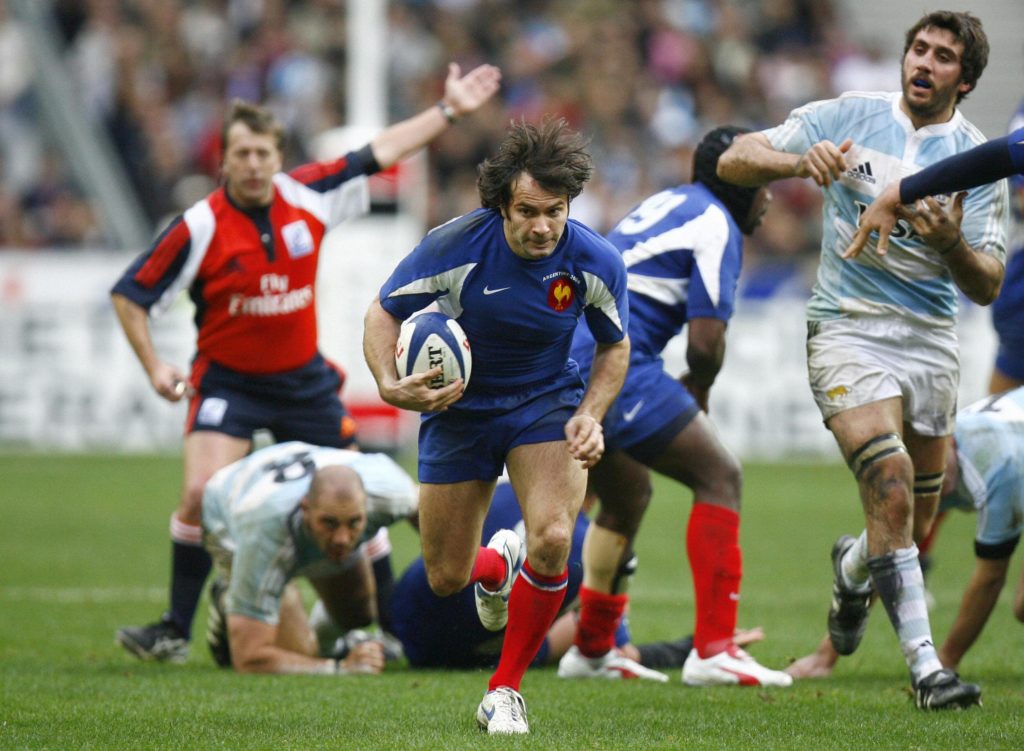
I was at the Stade de France in 1998 when he made his debut for France against England (France won 24-17). Domi, inevitably, scored his first international try (one of 25 he would go on to score in his 67 caps), and I had no doubt then that this diminutive and relatively unknown Toulonnais was destined for greatness.
The adolescent look of the enfant terrible with peroxide-blond hair was accentuated by his baggy shirt and shorts, certainly a size too big for him! Through an anguished smile, Marconnet said: “With your shit physique but your enormous and generous heart, you beat all the best defences in the world.”
Domi showed the world that on a rugby pitch, height and weight are but two measures of stature.
“I sprinted and got a rebound that couldn’t have been more perfect… There was someone up there watching over me and pushing me on.
Christophe Dominici
Perhaps his most iconic match came on October 31, 1999, at Twickenham, during the stunning 43-31 victory against New Zealand in the World Cup semi-final, when he scored a brilliant try against the All Blacks. Following up Fabien Galthié’s kick and moving at lightning pace, he plucked the ball out of the air, high and to his right, showing the sort of dexterité gestuelle that characterised the great Michael Jordan, and sprinted away to score behind the posts.
“I sprinted and got a rebound that couldn’t have been more perfect. I couldn’t miss. There was someone up there watching over me and pushing me on. I was in a state of grace. We could see immediately in the eyes of the All Blacks that they were shaken and losing ground,” he said.
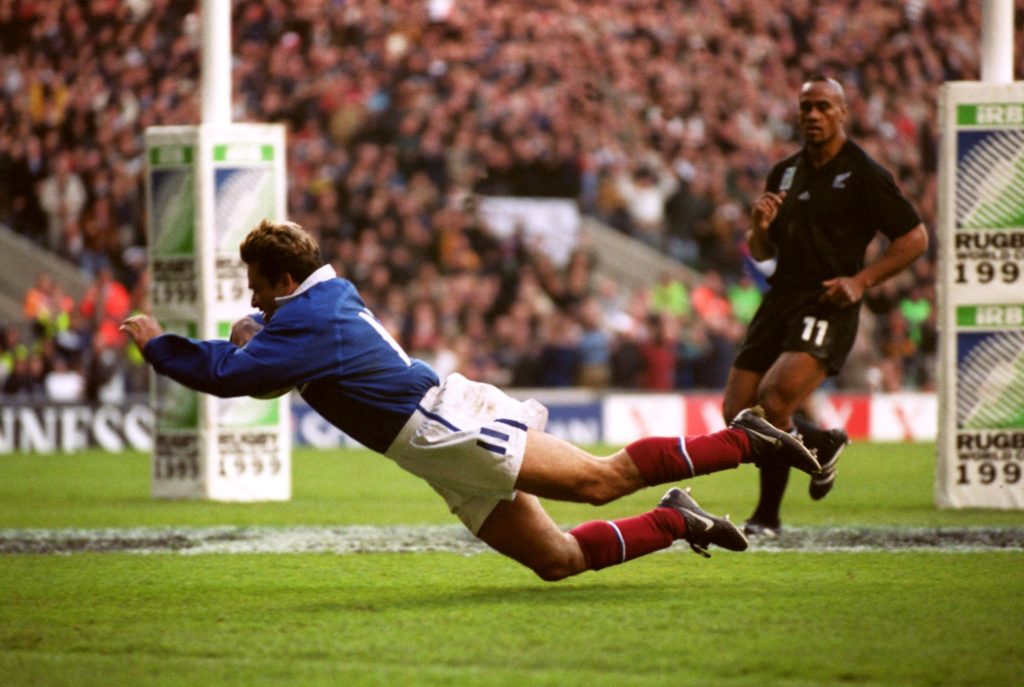
Richard Pool-Jones, the former England international, who played for both Biarritz and Stade Français, said: “I only played with two players who transform you from team-mate to spectator on the pitch: Serge Blanco and Christophe. They were head, shoulders and heart above everyone else.”
But what of the man? When it comes to such terrible circumstances, one is never party to all the facts and inner workings of another person’s mind. So, let me pick out three key events which provide some context to his enigmatic life.
Time present and time past
First, Domi admitted many times himself that his vicissitudes of fortune are rooted in a trauma of the past, a past that is always there, as T.S. Eliot reminds us in Burnt Norton:
Time present and time past
Are both perhaps present in time future
And time future contained in time past
If all time is eternally present
All time is unredeemable.
Domi’s fragility can be traced back to the death of his sister, Pascale, 10 years his elder, who perished in a car accident in the spring of 1986 when he was 14. It was a trauma from which he never recovered and goes some way to explaining a life that could be elusive, complex and unpredictable.
In his autobiography, ‘Bleu à l’âme’, published in 2007 (‘Blue in my soul’, where blue has a duel meaning of French rugby blue and melancholia), he describes the relentless wave of despair that, despite his joys as a rugby player, successes as a businessman or the smile of his two daughters, often ended up overwhelming him without mercy.
“The sadness from my childhood always catches up with me,” he wrote. “Like back then, I feel naked, defenceless without protection. I dive headlong into a state of melancholy, giving myself free rein to gorge on my self-destructive ideas. In those moments, I have no sense of perspective, no desire, no strength. From these dark hours comes acute tonsillitis. I believe I am going to die, suffocated or crushed under an invisible weight. I can’t stand up. I stay in bed for several days, curled up like a foetus. I don’t pick up the phone anymore.”
If I had been happy, I wouldn’t have played rugby and maybe I would have done a lot more stupid things.
Christophe Dominici
Devastated by the death of Pascale, he turned to petty crime in his teens and spent years trying to tame his suffering, bury the memory of Pascale and the joy of the moments spent with her. “I wanted to hide her existence, forget that she had lived, that people stop talking to me about it,” he told L’Équipe in 2003, in the middle of the World Cup.
“If I had been happy, I wouldn’t have played rugby and maybe I would have done a lot more stupid things. If I hadn’t had such a desire for revenge, such aggressiveness, such a desire to exist, I probably wouldn’t have done all of this.”
Rugby, in particular, was palliative for him. It gave him structure, discipline, respect, security and friendship, all or some of which let him manage the trauma of the past. He channelled his aggression and anger for the benefit of the ‘collective’.
La reconversion
Secondly, transitioning from the height of professional sport to the ‘real world’ is so hard, and Domi was no different. After playing, he tried his hand at coaching in 2008 but it didn’t last. He worked on TV and was president of Monte-Bacco, a wine and spirits business. But this wasn’t enough. He had a burning desire for another project that would put him in the limelight.
France legend Jean-Pierre Rives said: “In sport, we get very high. Then, when we stop, we have such a long way to fall. It’s then that the darkness descends. For some, it is intensely difficult.”
Denis Charvet elaborated and explained everything to me about his own experience of transitioning:
The price is terrible – the loneliness, lack of self-worth, lack of recognition, anonymity.
Former France centre Denis Charvet
“In October 1997, when I was 35, I played the last game of my career for the French Barbarians at Lansdowne Road. On that day, I experienced my first death. You know you are going to be replaced but you can’t prepare your exit. That only happens when everything stops and things suddenly change.
“People admire a champion when he or she is in the limelight. But afterwards, it is in the look of others that you understand what you have lost. The price is terrible – the loneliness, lack of self-worth, lack of recognition, anonymity.
“You can’t leave a professional sports career unscathed. Anyone who tells you that he or she handled their end of career well is in denial. There are no more changing rooms with their distinctive perfume. You no longer experience the grounds, friends or fame in the same way. The magic that you built your whole life around is no more. There is nothing left.
“The page was so heavy to turn that it crushed me. It requires an immense amount of courage to continue along the road to recovery. I suffered and lived very badly for about five years.”
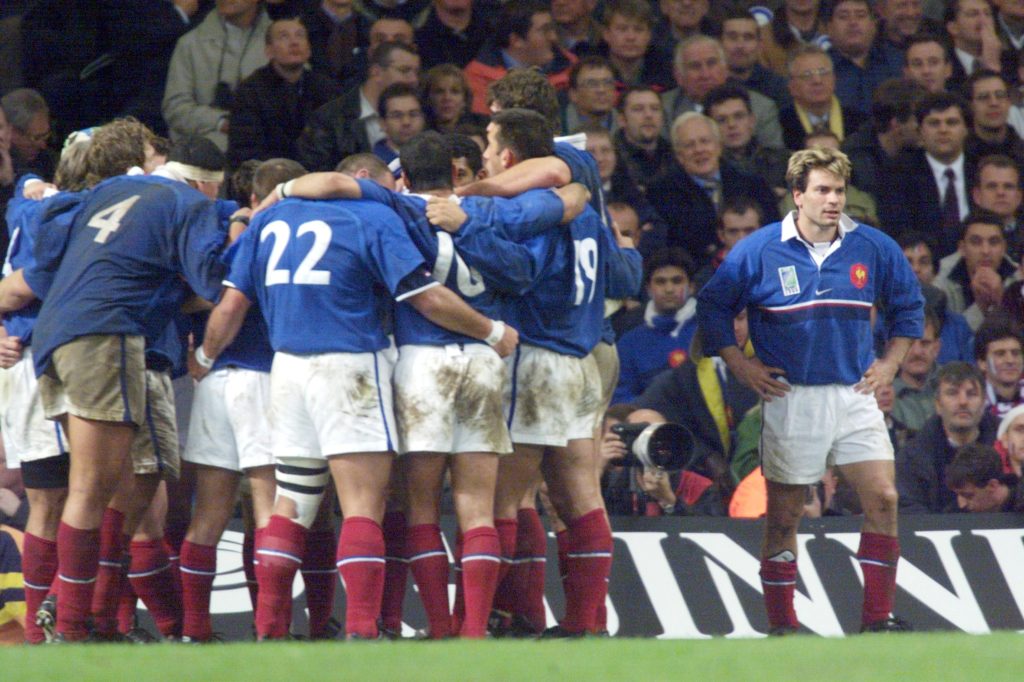
Denis isn’t alone in his struggles. Most players go through this, some more than most. And most beat it, finding a new career or purpose. Denis is a shining example of this.
How can the life of a top sportsman turn so dark? When I looked into the topic of idolatry, the thing that struck me was how one-sided the research is, focused on the person idolising, not the person being idolised. On the face of it, that seems to make sense.
The idol’s life is devoid of problems. He or she is special, superhuman, immortal, impervious to what we mere mortals have to contend with. The idol has it all, right? Wrong. For the sporting idol, their purpose has a cruel shelf-life, a sell-by date after which the material deteriorates. Compare that to a singer, TV presenter, politician, painter, comedian, whose fame and fortune aren’t really constrained by age. For a sportsman or woman, post-career, the negative impact on the mind can be huge, when they are still very young, typically in their early thirties, when most people are just starting their arc to success.
Every player’s circumstances are different, but it is fascinating to observe how former players I meet have managed their own reconversion.
Domi was a leader and animateur par excellence. He battled and fought and had to make difference. He needed a purpose.
Did Domi suffer from his own reconversion and take his life? Undoubtedly on the first question. On the second, we don’t know for sure; but it looks like he did.
Le dénouement
Thirdly, his recent attempted takeover of ASBH (AS Béziers Hérault) had failed, and extinguished his new lease of life.
A friend, who is very close to the club, said: “Domi was so committed to the project. He took the risk of leading the buyout, acting in good faith and trusting, perhaps naively, that it would go through. He thought the ASBH and the various governing bodies would support him, just like his team-mates would on the pitch. But life and business aren’t like that.”
His last public appearance was on June 23, 2020. Under piercing blue skies and with a microphone in his hand, Domi spoke to about 300 supporters of ASBH at the entrance to their Stade de la Méditerranée. He looked tired and stressed. Supported by some unknown Emirati investors, the former international wing had a grand projet to rejuvenate France’s once greatest club. But they had been tipped off that the following day it would be rejected.
His speech was passionate and rousing, inspiring to the supporters: “I said I would go right to the end… I hope that we’ll win together.”
It reminded me of a quote from Victor Hugo’s masterpiece ‘Les Misérables’: “There is nothing like a dream to create future. It is nothing to die. It is frightful not to live.”
In front of this iconic stadium also stands a statue of the most famous Bittérois of them all, the legendary Armand Vaquerin (10 French championships between 1971-1984) who died in 1993, allegedly while playing Russian roulette. Armand is a mythical, revered figure, standing tall like a Roman god. Domi took his position in front of him, perhaps looking for some divine intervention.
He recalls the memory of his sister Pascale. “I put all my heart and soul into this project.”
This project may have been the very type of reconversion that he was searching for. But it appeared to seal his fate.
Many high achievers search for the next adrenaline rush and this might have been the perfect inoculation for Domi. His grand projet could have bestowed on him the sort of veneration reserved only for former players like Vaquerin, Astre, Danos, Cantoni and Barrière. It could have given him status, a higher purpose and collectivité for which he craved, and it may have kept his childhood demons at bay.
Instead, the defeat left him crushed, humiliated and rejected.
None of us are perfect. We all have our doubts and demons, and I defy anyone to admit that they have never felt depressed or even contemplated suicide.
Domi’s story is indeed a cautionary tale of human fragility, and it is important we understand this. Mental health was once stigmatised in the UK but is now openly debated. In 2019, the PRA in England conducted some research on approximately 200 retired players, and 62 per cent had experienced some sort of mental health issue. Some manifest itself in an extreme way. Others find a way through. Others tragically take their own life, as was the case with Dan Vickerman in 2017.
But I don’t want to dwell on Domi’s flaws. I want to finish this piece as a celebration of his life, one overflowing with honesty, bravery, generosity, brilliance and excess.
Off the pitch, he always had a mischievous glint in his eye. He was the court jester and anything could go off at any time.
Andrew Knox
My great friend, Andrew Knox, ex-Loughborough alumnus, a larger-than-life character, had the fortune of working with the French team during the 2003 World Cup in Australia. He remembers Domi very fondly: “On the pitch, he was breathtaking to watch. He had that staccato-type movement, much like Shane Williams.
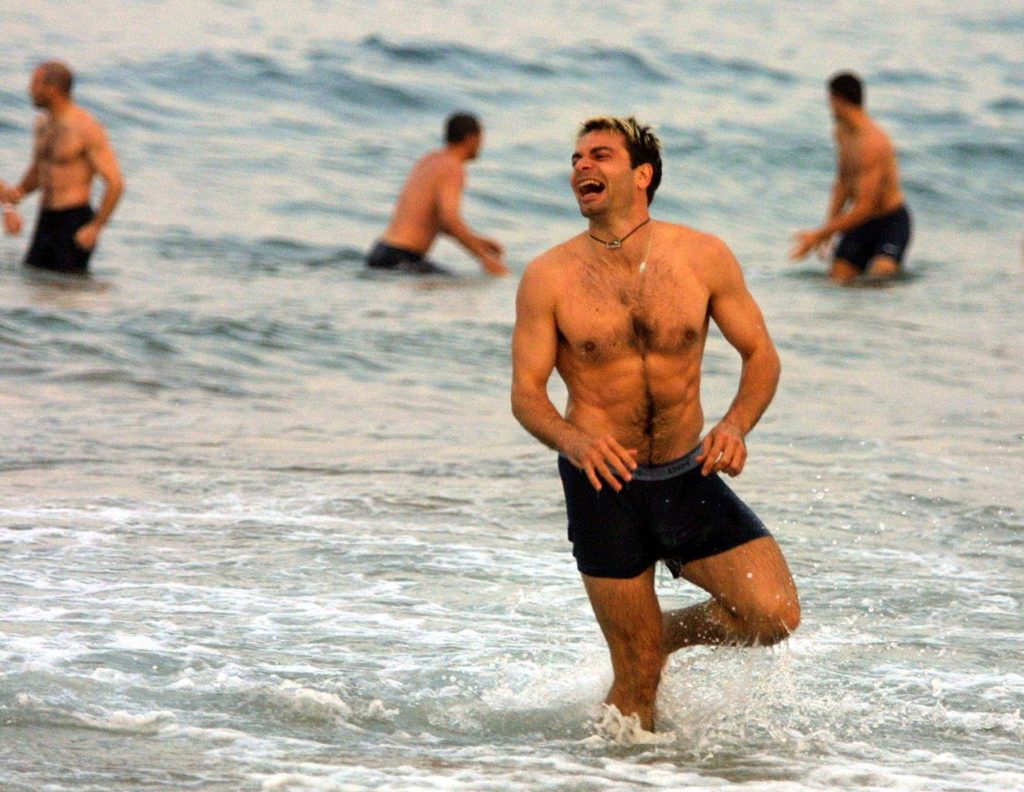
“Off the pitch, he always had a mischievous glint in his eye. He was the court jester and anything could go off at any time. One evening Rapha [Ibanez] held a kangaroo court session and decided that the team needed a cockerel as its traditional French mascot. So the next day, Domi walked into the dining room holding a cockerel. He decided that whoever was the dunce of the day had to look after it in their bedroom.
“On another day, he brought in a plate of witchetty grubs for people to eat. Can you imagine the look on the players’ faces? Some refused, some liked them. But they eat anything in France – snails, pigs’ ears, tripe, bulls’ testicles – so it didn’t surprise me!
“For Domi, it was like a permanent stag party, and he was the chief prankster at the centre of the games and activities. He was the life and soul, and your best friend. But like the animateur at the stag party, when you were in his sights, he could be your worst enemy too, roping you into all sorts of shit! He was brilliant fun and a wonderful human being.”
Nothing was impossible or off limits. He had balls of steel and a heart of gold.
Former France hooker Benjamin Kayser
Ex-France hooker Ben Kayser is effusive in his praise for Domi: “He was the life and soul of the party, a natural leader. He lit everyone up with his warmth and humour. He was the one at the back of the bus, leading the team spirit. He was tiny but you always heard him. He wasn’t one for training hard but he’d rock up in the gym and be deceptively strong. He’d say to the forwards, ‘It’s all about the genes. A Ferrari will always be a Ferrari!’
“He inspired everyone to reach for the stars. He made you believe that you could achieve anything. Nothing was impossible or off limits. He had balls of steel and a heart of gold.
“And he was so humble. He was a superstar and could go anywhere to any club and be invited into the VIP area within five minutes. But he was also capable of taking to anyone, from the cleaner to the kitchen workers. He never forgot that simplicity and humility.
“His support for new players really sticks with me. When I arrived at Stade Français, he took me under his wing. I remember that I had no boots so he called Nike and within 24 hours I had a three-year contract! And when Juan Martin Hernández arrived, Domi quickly spotted his class. Domi said to him, ‘Stay close to me and you’ll be OK’. He filled everyone with confidence. It was like playing with your big brother.
“Like all high achievers, he had this slightly crazy and excessive personality. But that is what made him brilliant. He had an edge, which inevitably goes once you stop playing.”
As Kayser is recounting his memories, I can’t get Oscar Wilde’s quote out of my mind: “Moderation is a fatal thing. Nothing succeeds like excess.”
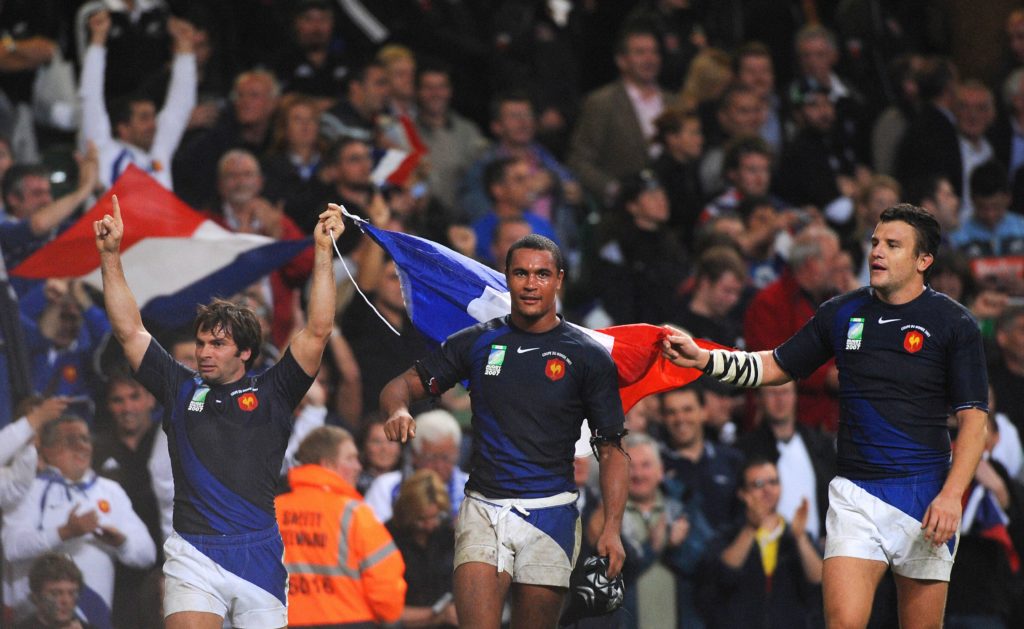
Like other French greats such as Boniface, Fouroux, Lacans, Paparemborde, Vaquerin et al, Domi is loved and lost but never forgotten.
A few days after Domi’s death, Charvet sent me a copy of his letter he wrote for his great friend:
“Dear Domi,
“Everyone called you Domi, it suited you: simple, friendly, sincere, authentic… like you belong to everyone. When I bumped into you at the Stade de France in the press area three weeks ago, how could I ever have imagined that this would be the last time I will see that mischievous and impish smile that you always had… a smile full of charm, innocence and love. You took me in your arms and embraced me like a brother, you were so happy, which both touched and reassured me at the same time.
“Being the humanist you are, as usual, you asked me how the family was doing, concerned about the happiness of others. You were a unique, rare, generous person… the one who was able to tame Goliath on his own at Twickenham, becoming a legend.
“You were both fire and ice; fire because you had this sacred fire within you, one which burned inside you but also gnawed away at you. You were ice because sometimes you needed to be alone in another place because it gave you some relief.
“As elusive and indomitable on and off pitch, you had to live the next 15 minutes as if it were your last. You would live at a hundred miles an hour… like James Dean, your hero. You couldn’t live without a challenge, without a fight to battle and win.
“A tortured soul, bloody, rebellious, you were above all a warm person. We would have followed you to the ends of the earth to wage war… or make peace. I had the pleasure of playing my last game alongside you at Lansdowne Road with the French Barbarians. You were a Barbarian to your core, the most Barbarian of Barbarians.
“As a last nod to life and fate, you wanted to leave before your childhood hero, Diego Maradona, you the footballer until you were 18 who could have won the ‘98 World Cup, who knows?
“But it doesn’t matter because as you said so beautifully for this famous semi-final won against the All Blacks, “That day, we were touched by grace… it was pure emotion, rising up from deep down inside us‘.
“You have been to the top of the world and touched the angels several times, you the child of Solliés… I am sure that they will welcome you up there and give you the place you deserve… and when you meet your friend Jonah, tell him that we miss him a lot too.”
Domi’s destiny was to be brilliant, mercurial and memorable. He was a towering monument of generosity, friendship and humanity, all of which he forged both on and off the pitch. His legacy will never be forgotten.
Heart is what drives us and determines our fate.
Adieu, Domi. Repose en paix.
Christophe Dominici
May 20, 1972 Born in Toulon
1989-2009 Clubs: Player at Solliès-Pont (1989-1991), La Valette-du-Var (1991-1993), Toulon (1993-1997), Stade Français (1997-2008). Coach at Stade Français (2008-2009)
1998-2005 Achievements: five-time French champions with Stade Français (1998, 2000, 2003, 2004, 2007) and twice finalist of the European Cup with Stade Français (2001, 2005)
1998-2007 67 caps for France, four-time Five/Six Nations champion (1998, 2004, 2006, 2007) and finalist at the 1999 World Cup.
He leaves his parents, wife Loretta and two girls.
According to Nice Matin, he’ll be buried on December 4 at the family cemetery of La Ritorte in Hyeres, alongside his sister, Pascale.
More French stories
If you’ve enjoyed this article, please share it with friends or on social media. We rely solely on new subscribers to fund high-quality journalism and appreciate you sharing this so we can continue to grow, produce more quality content and support our writers.


Comments
Join free and tell us what you really think!
Sign up for free